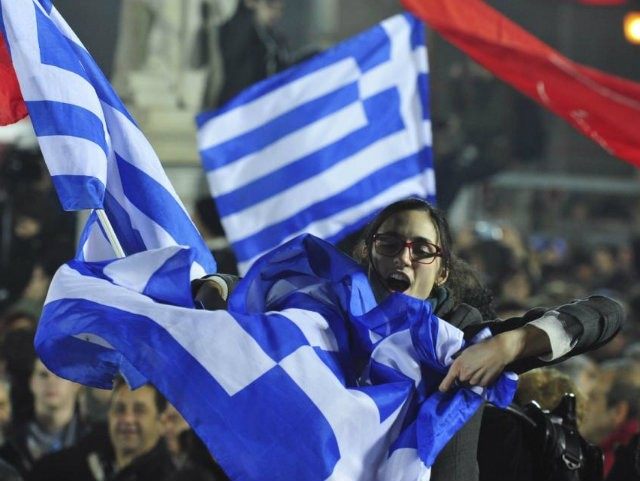Seventy-five years on from the end of the Second World War, the hostilities between Germany and Greece are rising as the war of words over debt and reparations continues.
Newly elected Prime Minister Alexis Tsipras made his first major speech to the Greek parliament yesterday where he said his country had a ‘moral obligation’ to claim for the repayment of a forced wartime loan along with other reparations, the Daily Mail reports.
Anti-austerity party Syriza claims Germany owes the country it invaded and plundered in the 1940s around €162 billion – or half the country’s public debt which currently stands at €315bn.
But Germany has rejected the demands from Greece, with Sigmar Gabriel, the German vice-chancellor saying there is “zero” chance the country will pay.
Tsipras told the Hellenic Parliament the country had “a moral obligation to our people, to history, to all European peoples who fought and gave their blood against Nazism.”
His first act on being declared Prime Minister was to lay flowers at the National Resistance Memorial where the Nazis shot 200 Greek Communist fighters on 1 May 1944.
“Our historical obligation is to claim the occupation loan and reparations”, he told lawmakers.
But Germany’s economic minister said the matter was dealt with back in the 1960s where a treaty was signed and payments made to compensate for the actions of Nazi Germany during the Second World War.
The issue resurfaced as Greece has was forced to endure embarrassing and painful reforms, led by the European Central Bank in Frankfurt, as it tried to squeeze its economy into a monetary policy designed around Germany.
Many Greeks lay the blame at the door of former the former occupier as they have seen wages slashed, jobs axed and unemployment soar with no real revival in their economy to pay back the debts they were forced to incur by the Troika. And the new finance minister has suggested a parallel between his country and the rise of Nazism in Germany in the 1930s, referring to the far right Golden Dawn party.
Germany paid Greece 115 million deutsch marks in 1960, one of 12 war reparations deals it signed with Western nations. And on the reunification of Germany in 1990, the ‘Treaty on the Final Settlement with respect to Germany’, which involved the former West and East Germany and the four World War Two allies of France, Britain, the USA and Russia, the terms effectively free a one under possible future claims for war reparations.
Or so say Berlin.
It now denies owing anything more to Greece following this one off payment but Athens says that it always considered the money as an initial, rather than total, payment with the remaining details to be finalised after German reunification.
The anger of how Greece was treated by the occupying forces still lives on in the Mediterranean country, where at least 300,000 died as Hitler’s troops helped themselves to anything they wanted, including stealing food to such a degree that the local population were left starving.
The economy was plundered through forced exports to support the Nazi war machine, leading to devastating inflation and a radically lower standard of living. For many elderly Greeks who remember the occupation, the suffering of recent year may have rang alarm bells in their ears.
Much of the money given to the Third Reich took place when the Greek National Bank was forced to ‘lend’ Germany 476 million reichmarks – interest free. The deal was signed on March 14 1942 by a team of German and Italian lawyers in the absence of any Greek representatives.
After VE Day in 1945, Greece laid claim to $10 billion at the Allied Paris Conference on Reparations.
But speaking at a gathering of his party near Berlin, Mr Gabriel said that a line had been drawn under ‘all these issues’ in legal terms, adding, “There’s no sense continuing down this road.”

COMMENTS
Please let us know if you're having issues with commenting.